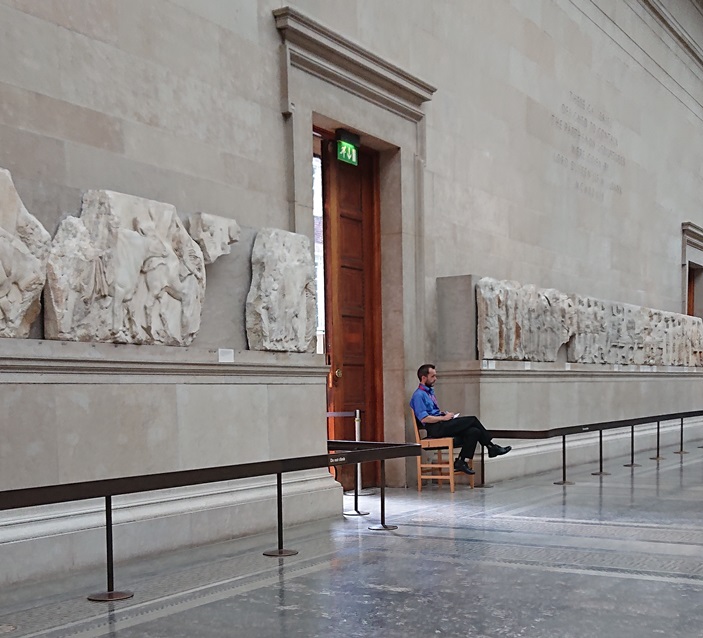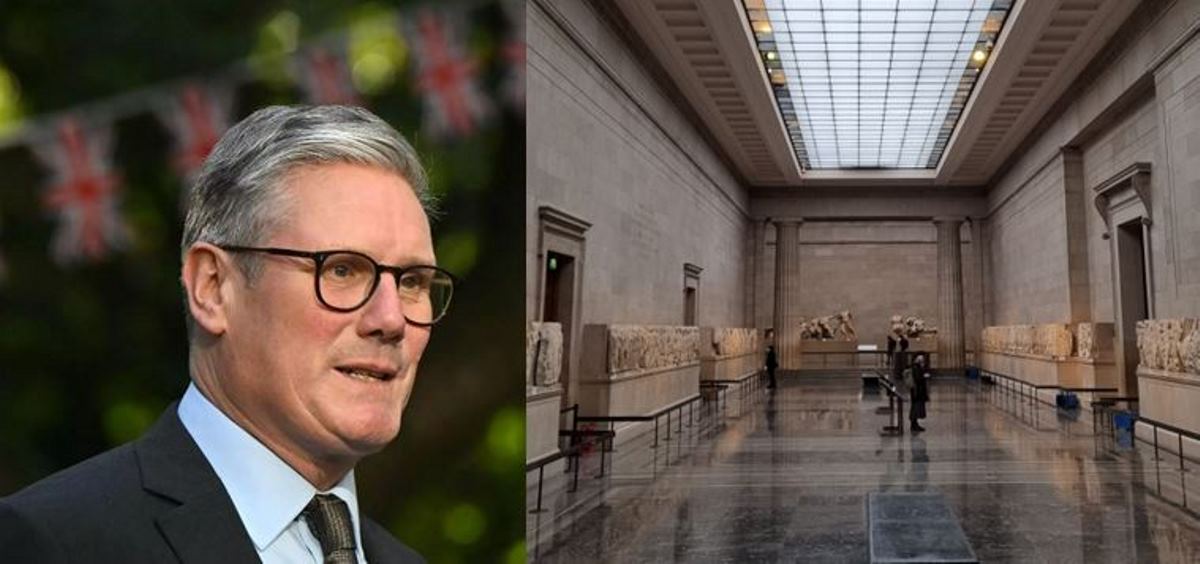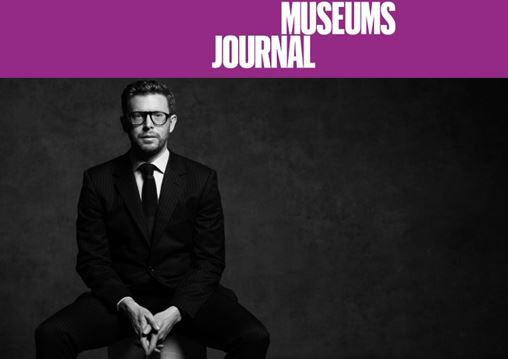This year's session of UNESCO's ICPRCP, the 24th session, took place over three days 29-31 May in Paris. To listen to the presentations and reactions, watch: https://www.youtube.com/live/hIF_Br8ZeT0?feature=shared
- Presentation for Greece was made by Professor Stampolidis, Director General of the Acropolis Museum and Artemis Papathanassiou, Head of the International Law Department for Foreign Affairs, Greek Ministry of Foreign Affairs: 3:36 - 3:54
- Presentation for the UK was made by DCMS, Polly Payne and the British Museum’s Tom Harrison, Keeper of the Department of Greece and Rome: 3:54 - 4:00
- Comments by the ICPRCP members nations post the presentations were made by Chile, Guatemala, Panama, Egypt, India, Italy, Libya, Gabon, Zambia, Venezuela, Iraq, Czechia: 4:00 - 4:27 plus additional comments by observer nations including Palestine, Honduras, Nicaragua and Turkey: 4:27 - 4:34. The Türkiye delegate Zeynep Boz, heads up the anti trafficking department and said there was no evidence to prove the Lord Elgin had been given a permit to strip the fifth-century BC monument, the Parthenon, of its sculptures.
- Reactions made by Artemis Papathanassiou, Polly Payne and Professor Stampolidis also followed: 4:44
Artemis Papathanassiou's response:
"Where the Trustees are vested with the title but they are not able to dispose of or transfer or sell or exchange their collections, what kind of ownership is this? Although the British Museum Trustees claim that they have legal title to the collection of sculptures removed from the Parthenon, they remain severely limited in terms of what they can do. So in the hypothetical case that the Trustees of the British Museum would feel a moral compulsion to return the Marbles back to Greece, the UK government is hindering its museum from doing so, hiding behind the law.
We have heard recent declarations from high ranking British government officials such as the Minister of Culture saying that the UK government has no intention of changing or amending this law.
The other issue concerns the loan that the British Museum is proposing to Greece. To our view the insistence of such a pre-condition would seem rather harsh and we examined the British Museum Act of 1963, which only requires that the Trustees have regard for students and other persons visiting the museum. According to the museum's own loan policy, the Trustees will lend in circumstances when the perceived risk to the object is considered reasonable and when borrowers guarantee that the object will be returned to the museum at the end of the loan period with no specific mention of acknowledging title.
And just to remind us that it is not usually (universally) that the borrower is required to acknowledge title but usually by the lender.
With regards to some specific remarks made by some other States, we would like to thank India for having highlighted that it is remarkable for the British side to advance the British Museum's deliberate argument if not abusive argument that they continue to hold the Parthenon Marbles for all humanity and we continue trying to justify an absolutely wrong historical doing to their commitment to humanity's culture.
We would also like to thank all the States for raising some particular aspects including Chile, Guatemala, Gabon, Libya - for having raised important issues that were highlighted in our presentation of cultural identity, as we have said repeatedly, the Parthenon Sculptures are not only our cultural heritage but they are strictly connected to cultural identity and the right of a person to have access and enjoy their own cultural heritage must not be restricted.
The integrity of works of art must be preserved so as not to impede the inherent right of participating in cultural life.
In concluding, we wish to thank Turkey for having raised a very important issue, which also responds to the British Museum. As the removal happened during the Ottoman era, there is no legal title or legal permission or any other document providing that there was a permission by the Ottoman side, which would give legality for this misuse of the diplomatic power of Lord Elgin at the time.
The statement made by Türkiye's delegate, Zeynep Boz were widely reported. Here's to the UK to reconsider amending the Museum's Act in order to allow these sculptures to be reunited with their surviving halves as close as we will ever be able to see them to the Parthenon.
Now Greece continues to look to the UK for continued dialogue and dispute resolution, which would enable the Parthenon Marbles/Sculptures to be reunited in the Acropolis Museum.

Zeynep Boz and Artemis Papathanassiou
Among the coverage that this 24th session of the ICPRCP received, it was also uplifting to read in Sunday's Kathimerini (09 June 2024) that there were unsung heroines: Ms Vassiliki Papageorgiou, head of the documentation department of the Greek Ministry for Culture and Artemis Papathanassiou, Head of the International Law Department for Foreign Affairs, for the Ministry of Foreign Affairs, both credited for all of their preparatory work and in Artemis' case, we should also acknowledge her interventions during the sessions. We thank them both.
A timely reminder that at the 23rd session of UNESCO's ICPRCP in May 2022, we were all horrified to hear that Jonathan Williams, the then Deputy Director of the British Museum, making a strong statement, declaring: 'there can never be a magic moment for the reunification of the sculptures'. Half of what survived in the early 19th century had been shipped to England by the then Lord Elgin, and then in a fire sale, sold to the government who in turn entrusted these sculptures to the British Museum.
The long and rich history of the Parthenon, spanning over a period of more than 2,500 had left some sculptures lost forever and yet the surviving 60% are to this day, mainly divided between the Acropolis Museum in Athens and the British Museum in London.
Jonathan Williams did graciously, praised Greece on the restoration of the Parthenon, however he stressed that most of what is displayed in the British Museum's Room 18 had not been forcibly removed from the Parthenon but taken from the rubble.
BCRPM's Hon President, Anthony Snodgrass, responded to Jonathan William's statement that the Parthenon Marbles had been removed mainly from rubble.





Comments powered by CComment